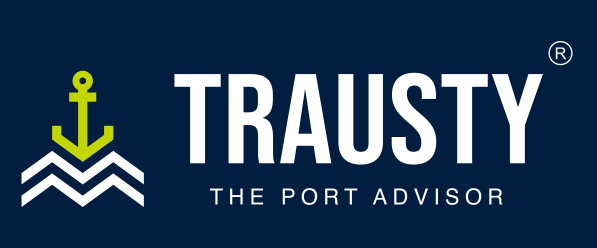Maersk, Hapag-Lloyd, Carnival, Port of Rotterdam, and the Panama Canal are amongst 155 of the biggest players in the maritime industry who are urging governments to decarbonize international shipping by 2050. News came after these players signed a "Call to Action for Shipping Decarbonization," encouraging government to align with the private sector's initiative.

Source: Domink Luckman, Unsplash
This movement can allow zero emission shipping to become a possibility by 2030, and it can start with these big leaders presenting the opportunity to their clients, more specifically, stating that the maritime sector needs this now. One example of the time and discipline that will take place for this to become a reality is the Panama Canal's recent efforts. The Panama Canal started tracking their carbon footprint back in 2013, "with the intention of better aligning its operations to reduce emissions and adapt to climate change," according to a press release from the Panama Canal on September 22nd. The Panama Canal also designed and developed an emissions calculator offered to shipping lines since 2017, where transiting vessels can calculate their greenhouse gas emissions per route. It is also charging a first-time water usage surcharge "due to changing rainfall patterns and historic low water levels at Gatun Lake," as stated in The Maritime Executive.

Source: Green Connection. Canal de Panama.
The Panama Canal, as well as the Republic of Panama, faced a turning point in 2020 through the pandemic, and a much needed action had to take place to reduce climate change. Panama's strategic location and strong ties with powerful behemoths, including the US and China, allowed the Panama Canal to maintain a strong front after the pandemic. Yet, even though the country's economy was heavily impacted by the pandemic, the Panama Canal still showed its resilience through an increase in its number of vessel and tons transited in 2020. Given the necessity of shipping worldwide, and the amount of transits that the Panama Canal welcomes per year, it is crucial and urgently needed that these players along with the Panama Canal unite for decarbonization.
Companies can track their emissions and become more conscious, but can we achieve sustainable supply chains within the current industry applications? Collaboration and commitment are key for the industry since global clients can be influenced by their local leaders, and those in the private sector can influence the government. I believe these two HAVE to go together: collaboration and commitment. The Paris Agreement and the Call-to-Action initiative, among other projects, have proven that there is a market need and demand, yet the private sector and national action have to join their efforts and collaborate towards decarbonization. Climate change undoubtedly will be impacted by this movement, but customers are asking companies to commit to sustainable supply chains and this could also biring more "jobs and opportunities to people in developing countries and emerging economies," according to Johannah Christensen, Chief Executive Officer of the Global Maritime Forum.
Signatories results will be measured in the next couple of years; in the meantime, the following is what these leaders committed to follow in order to achieve zero carbon emissions by 2050 with the Call-to-Action initiative:
1) Commit to decarbonizing international shipping by 2050 and deliver a clear and equitable implementation plan to achieve this when adopting the IMO GHG Strategy in 2023.
2) Support industrial scale zero emission shipping projects through national action, for instance by setting clear decarbonization targets for domestic chipping and by providing inventives and support to first movers and broader deployment of zero emissions fuels and vessels.
3) Deliver policy measures that will make zero emission shipping the default choice by 2030, including meaningful market-based measures, taking effect by 2025 that can support the commercial deployment of zero emission vessels and fuels in international shipping.
Source: Over 155 industry leaders and organizations call for decisive government action to enable full decarbonization in international shipping by 2050. 2021. Bureau Veritas.
Published by:
Trausty Times
September 22, 2021
Maria A. Lince






